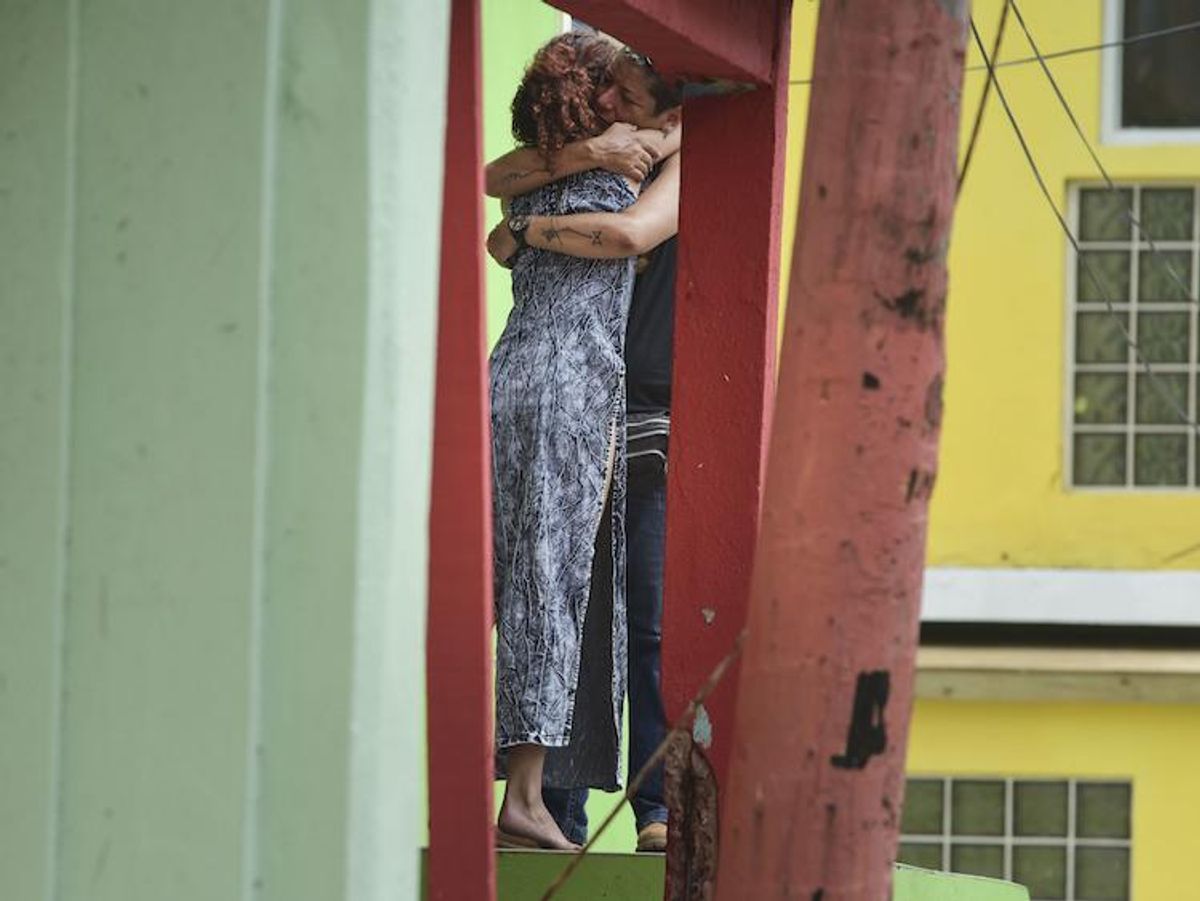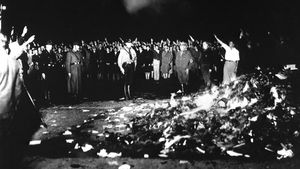Hurricane Maria has destroyed Puerto Rico, leaving the U.S. territory's population of 3.4 million without any power, food or other fundamental resources vital for daily survival.
The island's only LGBTQ Community Center is among the severly damaged buildings, and its executive director Cecilia La Luz one of many community leaders forced to aid suffering queers with inadequate supplies.
CenterLink, a non-profit coalition that supports LGBTQ centers across the world, has launched an official fundraiser with all donations going directly to La Luz's active LGBTQ efforts.
We called up CenterLink's CEO Lora Tucker and Senior Director Denise Spivak to discuss how they're providing relief for Puerto Rico's LGBTQ community, and why this devastation will require ongoing support--not just this week, but for many months down the line.
OUT: For those who're unfamiliar, what does CenterLink do?
Denise Spivak: We're the Association of LGBTQ Community Centers, so our day-to-day work--hurricane or not--is being there to support LGBTQ community center leaders and make them successful so, through their work, we get strong performing centers and healthy, vibrant [queer] communities. We're international in scope, working across the country, as well as in Canada, Australia and China, but our membership leans heavily U.S.
You briefly spoke last week with Cecilia La Luz, the director of Puerto Rico's LGBTQ Community Center.
Lora Tucker: It took us a while to even have the ability to communicate with our Puerto Rican center, and she finally got through so that we knew how they were, what they needed and how we could best support them. We heard from her early last week.

Ramon Espinosa/AP
There were a few days of silence after Hurricane Maria hit?
Denise: Just like with everybody. We still have friends and colleagues who are waiting to hear from their friends and families in Puerto Rico. This isn't done. It's still people wondering if their families are okay. People can't communicate. They can't get lines out. It's still not easy, so the fact that she was able to even reach out and call us was totally unexpected. We were thrilled to hear from her.
What updates did Cecilia have?
Denise: She confirmed that the situation is dire. That they don't expect to have power for months, if not a year. That their immediate needs are not so much money, it's really about supplies. It's about nonperishable food, batteries and flashlights--the basic things they need to get through each day.
Lora: Puerto Rico's infrastructure has been destroyed and, as Cecilia said, they're in dire need of so many things, which is where we come in. We have the ability to engage our LGBTQ community centers nationally in support of a center that's in crisis.
How are you engaging these centers?
Lora: The centers are spreading the message for us to their constituents. When something like this happens, everybody contacts the main person they go to find out how they can help and in most cases, if they have one in their community, it's the LGBTQ Community Center. In New York, there's a very concentrated effort to collect funds and supplies for Puerto Rico, but for the rest of our centers, it's about helping us spread the word so that people who want to help can.
How can people support your efforts?
Lora: We're receiving financial donations, but the challenge we've been debating today is the best way to give them the things they need. Because if we ship them, their infrastructure is broke and there's a possibility that they won't receive what they need for weeks. We're actually trying to find someone that we can fly over to Puerto Rico and be on the ground, so they can take a couple generators and some dry goods.
Denise: The generator is our biggest challenge.
Lora: They need solar generators--generators that don't need gas, so how can we provide those things in a timely manner? Because they need it now and we don't want to ship it realizing they might not get it for weeks or months. We're trying to get someone to take a shipment of generators and supplies over, so that we know without a doubt that they receive this support.

Gerald Herbert/AP
Tell me more about your fundraiser.
Denise: We started this fundraiser four days ago and we've already received more than $6.5k. People have been incredibly generous, so if we're talking about how people can help, definitely through donations. But I think something we have to consider is that when something like this happens, donations come in fast and furious at the beginning, and then people are like, Oh good, I did it. I'm done. This is going on for a long time and people in Puerto Rico are going to need our support for a long time. It's really about helping now, but also thinking about the next time you can help because this isn't going to be fixed in a month.
LGBTQ homeless youth is a pressing issue in Puerto Rico. Is this something you're addressing?
Denise: We're using a good portion of the funds we're getting right now for supplies. As things start getting better and back to normal, then we're going to have a look at humanitarian aid and financial aid, but that's longterm. Right now, it's about the basics and essentials to get through each day. And unfortunately the reality is that right now, there's probably 98 percent homelessness in Puerto Rico. Nobody's unaffected by this. When Cecilia and I spoke, that was her message: financial aid is going to be needed, but that's not what's needed right now.
Lora: Things like dry milk, batteries, dried goods, food, wipes, aspirin. It's important to know, as Denise said, that this is going to require a longterm solution. We have very short term memories as Americans, so how do we as a community ensure that Puerto Rico continues to receive support over time until they're whole again.
To donate to Puerto Rico's LGBTQ Community Center, click here.



























































































